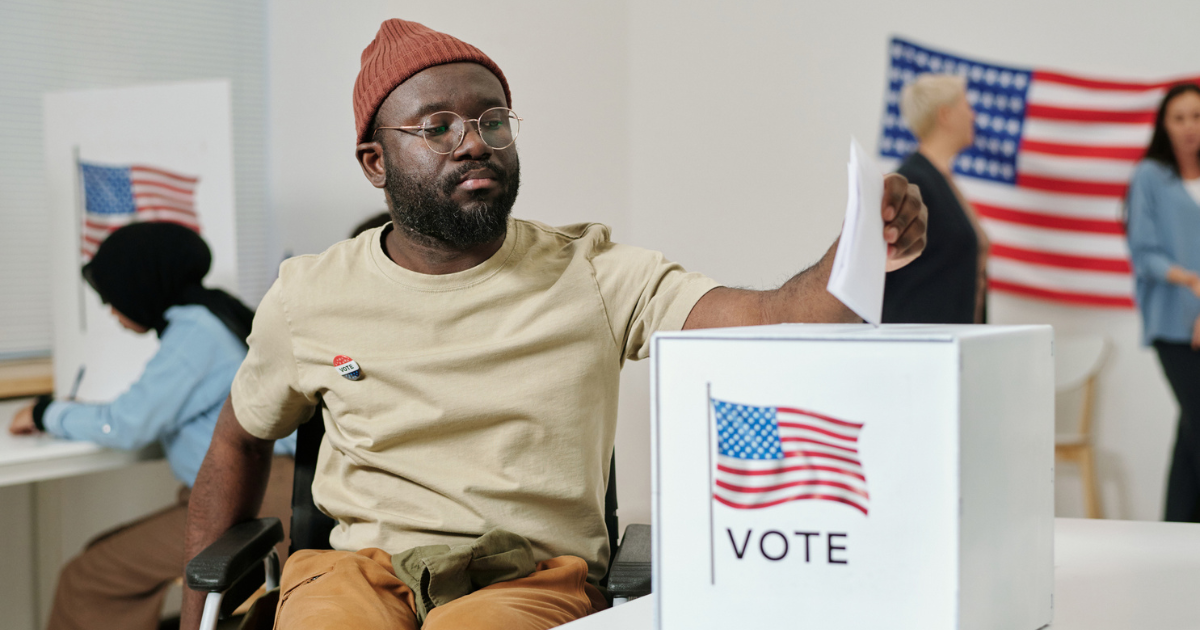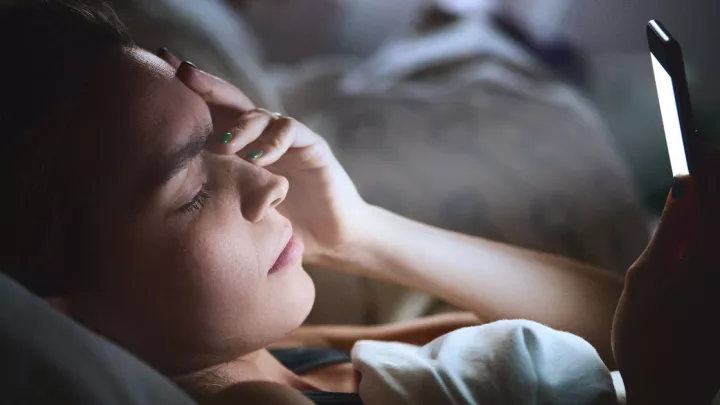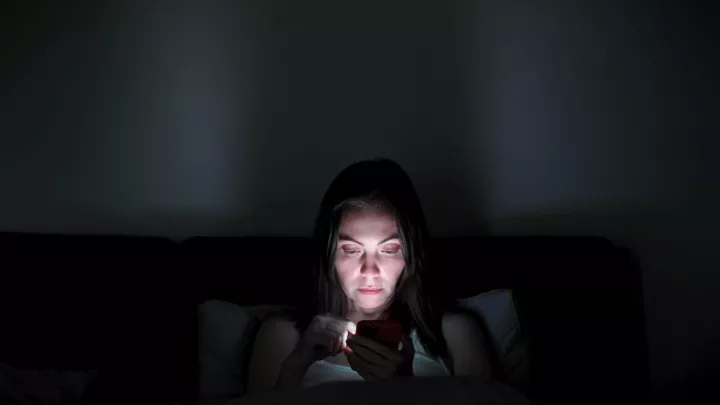Indecision 2024: How to cope with election anxiety

A new election cycle means promises of change, new possibilities, lots of annoying ads, uncertainty and a source of stress for some. A recent poll by the American Psychiatric Association found that 73% of people were stressed about the upcoming election and 70% about current events in general.
“The similarities in these high numbers are meaningful,” says Nebraska Medicine psychiatrist Lauren Edwards, MD. “We’re anxious about the world we live in – from healthcare to artificial intelligence and school violence, there’s a lot to worry about.”
Watching political news and scrolling on social media can contribute to heightened anxiety, leading to poor mental health and a sense that only bad things are happening in the world. Politicians can play this up in endless campaign ads by stoking fear and anxiety to get donations and votes.
“I think the media has an incentive to increase fear and anxiety because it leads to more viewers and higher revenues for news outlets,” says Dr. Edwards. “Social media platforms have algorithms that feed emotionally triggering content to keep you engaged. So, how do we know what threatens us here and now? How do we stay informed without getting stuck in a cycle of stress?”
Reduce exposure and be careful what you consume
“Doomscrolling” refers to spending too much time reading and viewing negative news on social media platforms. This term became popular in 2020 around the COVID-19 pandemic and lockdowns. People feel the need to stay informed, but this can also lead to negative thought patterns, anxiety and depression.
“I strongly recommend making the last 30 to 60 minutes of your day news and social media-free,” says Dr. Edwards. “Light from the devices can disrupt sleep, but it goes far beyond that. The imagery and content can be internalized, leading to higher stress levels.”
Other ways you can lessen election anxiety include:
- Noticing patterns and connections between your anxiety and what’s going on in the news. Moderate your screen time or cut it out entirely during these times.
- Practicing skepticism when fear of other people is encouraged.
- Limiting media to 30 to 60 minutes per day and reading the news when you can instead of watching.
- Finding commonality with others, especially neighbors or colleagues who think differently than you. Election cycles will pass, but people around you will still be here.
- Exercising! This makes cortisol (the stress hormone) productive rather than keeping you tense and restless.
- Being present. Turn off notifications and news feeds, mute group chats, avoid the 24-hour news cycle or put your phone away when you need to.
- Putting stress toward positive activities. Volunteer to help in your community on issues you care about or encourage others to vote during election season.
Bridge the divides
Part of the anxiety election cycles cause for some is the interactions with family members around the holidays, friends, or co-workers who don’t see eye-to-eye with you. It’s usually best to avoid political conversations, especially in the workplace, but when it becomes unavoidable, there are ways to avoid conflict and heated conversation.
“It’s a human impulse to defend ourselves and our political opinions and change the minds of others,” says Dr. Edwards. “Don’t try to convince anyone of anything. Just listen, reflect, ask questions and try to remain open-minded.”
Additionally, changing the subject to something more benign that everyone agrees on, such as weather, sports or food, can lighten the mood and make the conversation more lighthearted. If appropriate, you can find ways to transcend the issues and find common ground.
Take care of yourself
Election stress and anxiety can lead to poor mental and physical health. It can also lead to feelings of worry, loneliness and isolation.
“There have been studies indicating that alcohol use may increase on those who consider their candidate to have lost,” says Dr. Edwards. “We’re seeing fractured social relationships in families and friendships, and people may feel like they can’t engage with someone with different political views.”
Dr. Edwards also says it’s important to remember that people will rebound shortly after election time, and “this will pass.” Remember to take care of your emotional wellness and remind yourself that you’re not alone.
“One of the unique aspects of election-related stress is that it’s a collective experience,” says Dr. Edwards. “No one is in the world or communities alone, and the anxiety can signal that we all care – even if we have different ideas on how to run it.”







